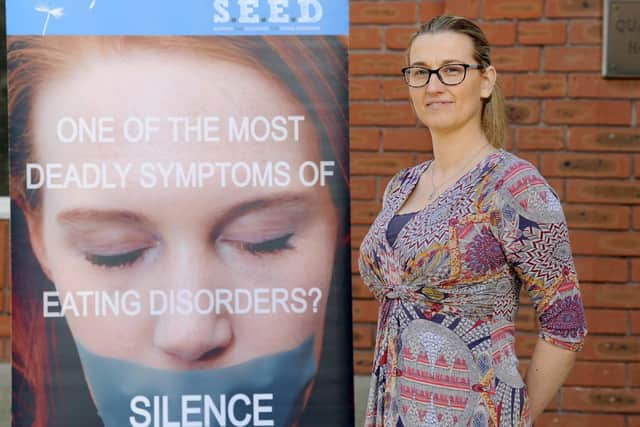Calories on menu: Founder of Preston Eating Disorder treatment service Breathe Therapies condemns introduction of new rules
and live on Freeview channel 276
The move has been condemned by Shelley Perry, the founder, CEO and Clinical Director of Breathe Therapies, a Preston based mental health service with a focus on eating disorders and obesity, who says her reaction to the news “was one of disappointment and sadness.”
The government says it aims to tackle the country’s obesity problem by helping people make healthier choices, however Shelley, who previously worked as a mental health and eating disorder nurse for 13 years at The Priory Hospital in Bartle, before setting up Breathe Therapies in 2010, says this is not the way to do it.
Advertisement
Hide AdAdvertisement
Hide AdShelley said: “I don't believe that this is the right approach for dealing with obesity and the impact of it, for people who don't really have a nutritional understanding, will just be unnecessary concern around calories, and this encourages people to count calories, or restrict calories earlier in the day so that they can eat more later on, which isn't a healthy way of eating, and that's where eating disorders start.


“Understanding the nutritional value of food is far more important than the calorie count, because it may be that one meal is much more calorific but that’s because it has more complex carbohydrates, healthier fats, a full range of proteins and all the nutrients that a person would need. It's not the case that just because something is lower calorie it is better for you, and that message isn't going to come across just by putting some numbers on the menu.”
Shelley adds that whilst she appreciates the benefits of the government wanting to educate people on good and bad food choices, even without the misguided calories focus, she would not support a more comprehensive list of nutritional information on menus either.
She explained: “I'm just not sure restaurants are the right place to try and educate people. If people are going out to a restaurant, then they're going out to socialise and do something special, not necessarily to be nutritionally or calorifically minded. From a government perspective, we need to be looking at different strategies, whether that's educating people in schools and workplaces, or perhaps coming up with schemes in the workplaces for healthy eating.”
Advertisement
Hide AdAdvertisement
Hide AdBut as well as the compulsory calorie information not helping with obesity, Shelley believes it may worsen the country’s “eating disorder epidemic” as well.


Shelley, who’s own recovery from an eating disorder inspired her to set up Breathe Therapies to help others, explained: “Eating disorders aren't just about numbers, it's a very complex mental illness, however focus on weight, body image, numbers and the control of food are the signs and symptoms of an eating disorder, so this is only going to add to the problem.
"So where somebody has the propensity for an eating disorder, i.e. they have low self esteem, poor body image, identity issues, control issues or underlying trauma, which makes them need to feel in control of something, this is too easy to jump on the back off.”
Shelley says she is not alone in her condemnation, having received numerous messages from Breathe Therapies’ dieticians since the announcement, who have also all sent her petitions that are going around which call for a u-turn.
Advertisement
Hide AdAdvertisement
Hide AdBut with the scheme still going ahead, Shelley offered this advice to consumers: “I would encourage people to focus on their wider nutritional knowledge. If they have some understanding, they'll know that a balance of regular and consistent exercise, but not excessive, and good food regularly with proteins, complex carbohydrates, good fats, vitamins and minerals, is where the focus needs to be, not on numbers.”
Breathe Therapies is a nurse-led service which supports individuals and their families across Preston and the North West through group treatment and holistic therapy.
To find out about their work visit their website.